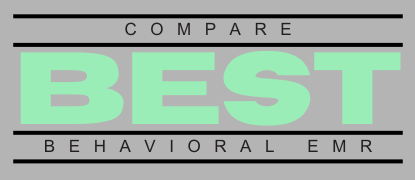
If you’re a behavioral health practice owner or clinician, you’ve probably heard countless promises about how behavioral health EMR systems can revolutionize your workflow and significantly boost productivity. But let’s face it, while EMR software has become essential, not all EMR features are created equal. Some truly streamline your operations and free up valuable clinical time, while others might actually slow you down. So, how can you tell the difference?
Let’s explore the key EMR features proven to enhance therapist productivity and how to evaluate whether your current or potential EMR system includes them.
Why Therapist Productivity Matters and How EMRs Impact It
Therapist productivity directly influences patient care quality, satisfaction, and practice profitability. According to research from the National Institutes of Health, clinicians spend significant time on documentation, often leading to burnout and reduced patient engagement. A thoughtfully designed behavioral health EMR can substantially alleviate these issues by automating administrative tasks and streamlining clinical workflows.
Essential EMR Features That Enhance Therapist Productivity
When evaluating an EMR system, look for these critical features:
1. User-Friendly Documentation Tools
Documentation is often cited as the most time-consuming aspect of a therapist’s day. A behavioral health EMR with intuitive and customizable documentation tools helps therapists quickly capture session notes, treatment plans, and assessments. Look for features such as:
- Templates and customizable forms: Allow therapists to document efficiently while maintaining thoroughness.
- Voice-to-text capability: Enables quick transcription of notes, reducing manual typing time.
- Auto-saving and autosuggestion features: Prevent data loss and reduce repetitive documentation.
2. Integrated Scheduling and Appointment Reminders
Managing client appointments manually can lead to scheduling errors, missed appointments, and wasted clinical time. An effective EMR integrates scheduling into its core functionality, offering:
- Real-time calendar syncing: Ensures therapists have accurate and up-to-date schedules.
- Automated appointment reminders: Reduce no-shows and keep therapists focused on client care, not administrative tasks.
3. Secure Telehealth Integration
Telehealth has become an integral part of behavioral health practices. A robust EMR should seamlessly integrate telehealth services, eliminating the need for third-party applications and reducing complexity for therapists. Key elements to look for include:
- HIPAA-compliant video conferencing: Ensures secure, private sessions for both client and therapist.
- Easy session scheduling and launching: Allows therapists to initiate sessions directly from their EMR dashboard.
- Integrated billing for telehealth visits: Streamlines reimbursement processes and reduces administrative overhead.
4. Efficient Billing and Revenue Cycle Management (RCM)
Billing headaches can drain therapists’ time and morale. An EMR with built-in Revenue Cycle Management (RCM) simplifies claims submission, payment tracking, and financial reporting, freeing therapists from tedious administrative tasks. Consider EMRs offering:
- Automated claim submission: Decreases errors and accelerates reimbursement.
- Real-time eligibility verification: Reduces denials and administrative follow-ups.
- Integrated payment processing: Allows seamless collection of client payments.
5. Customizable Analytics and Reporting
To achieve maximum productivity, therapists and practice managers need insight into performance metrics. Effective EMRs provide customizable dashboards and reports to help you analyze productivity, patient outcomes, and operational efficiency, empowering informed decisions. Look for:
- Real-time performance dashboards: Track productivity and identify areas for improvement.
- Outcome measurement tools: Help therapists gauge treatment effectiveness and adapt approaches quickly.
- Compliance reporting: Simplifies regulatory requirements and audits.
Evaluating Your Current or Prospective Behavioral Health EMR
Now that you know which features matter most for therapist productivity, it’s time to assess your existing or potential EMR system. Here’s a quick evaluation checklist:
- Does the EMR save therapists significant time on documentation?
- Is patient scheduling seamless and integrated, reducing missed sessions and administrative overhead?
- Can therapists easily initiate secure telehealth sessions right from their EMR?
- Does the EMR streamline billing and claims processes to reduce administrative burdens?
- Are productivity and outcome insights easily accessible through intuitive analytics?
Take the Next Step in Improving Therapist Productivity
Choosing the right behavioral health EMR is crucial for boosting therapist productivity, reducing burnout, and enhancing patient care. It’s essential to thoroughly evaluate your EMR options based on the productivity-enhancing features outlined in this article.
Still unsure if your current EMR measures up? Our experts can help you find the perfect solution tailored to your practice’s unique needs. Take advantage of our free practice analysis today, and let’s boost your practice’s productivity together.
{ “meta_description”: “Discover essential behavioral health EMR features proven to boost therapist productivity and streamline clinical workflows in your practice.” }
